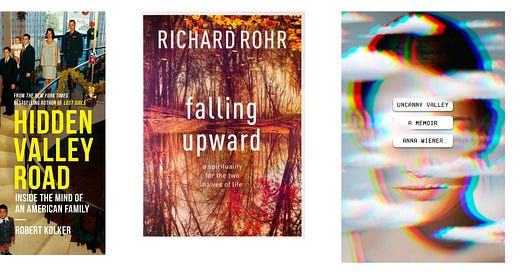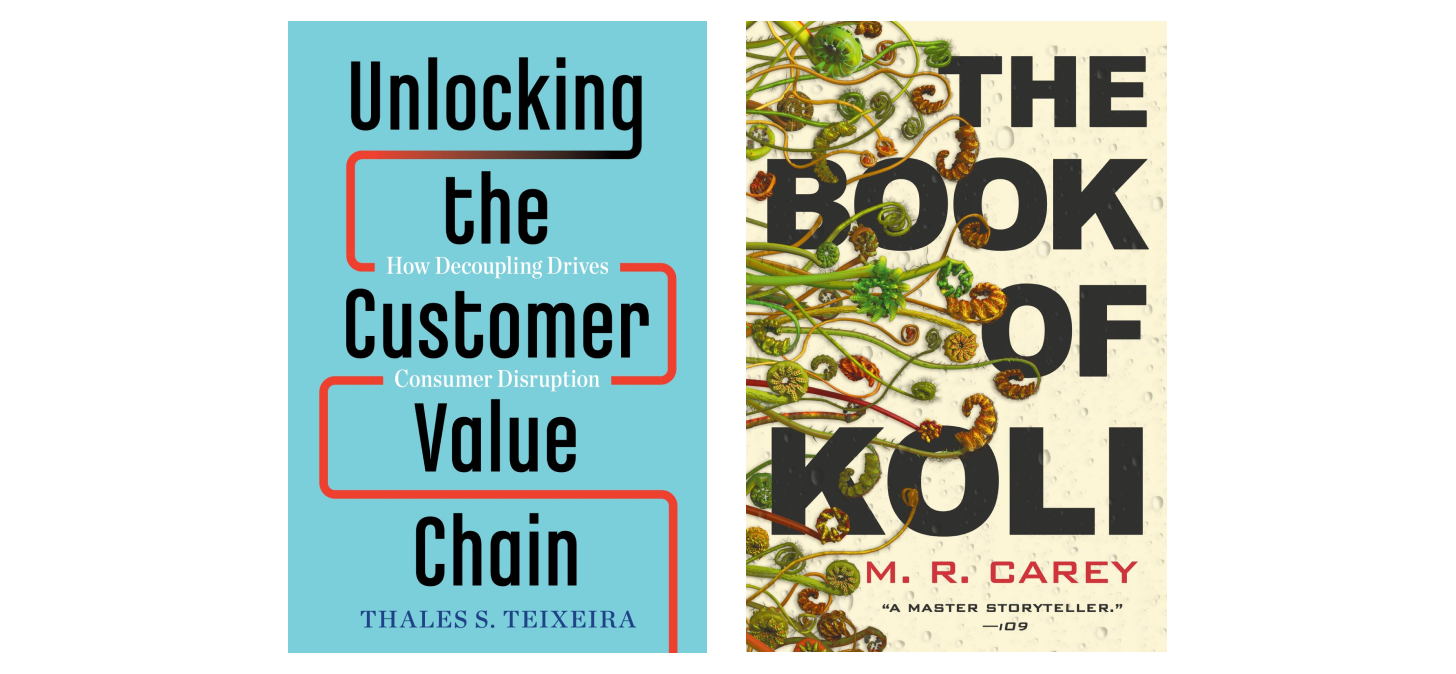150. Best Books of 2020 📚
My favorite reads of the year, plus a list of allllll the books I read (66 of 'em)
I share a weekly update on ways to be a better marketer, brand-maker, team-builder, and person. If you enjoy this, you can share some love by hitting the Substack heart button above or below.
Hi there 👋
Many, many thanks to those who shared feedback with me last week about the future of this newsletter. tl;dr — the future is bright! People enjoy the links and the essays and would love to see some playbooks and real-world examples.
(There’s still time to share thoughts if you haven’t already.)
For the remaining weeks of the year, I’m going to share some “best of” lists, featuring the things I’ve enjoyed most over the past months. This week: books. Next week: articles. The week after: everything else. If you have any favorites from the year, it’d be fantastic to hear from you anytime.
Wishing you a great week,
Kevan
Here are 3 cool things I found this week
1 - Social Strikes Back — a special report from Andreessen Horowitz on the vital importance of social products.
2 - The hype cycle feat. the peak of inflated expectations, plateau of productivity, trough of disillusionment, slope of enlightenment
3 - Cool new app: Listory, news and articles curated just for you
⭐️ (You can get a free three-month premium membership through this special form.)
My favorite books of 2020
Uncanny Valley
This book tells the story of the author’s experience working for startups. It’s fascinating to hear someone else’s perspective on tech and Silicon Valley: A lot of her sentiments resonate with what I’ve seen, felt, and heard, but there was a fair deal that was fresh perspective and helped give me a more complete picture of what tech might feel like to others. Interestingly enough, the author never names the companies she works for, so that was kind of a fun scavenger hunt to piece together some of the clues. (The answer is here, if you’re curious.)
I had also been spoiled by the speed and open-mindedness of the tech industry, the optimism and sense of possibility. In publishing, no one I knew was ever celebrating a promotion. Nobody my age was excited about what might come next. Tech, by comparison, promised what so few industries or institutions could, at the time: a future.
Hidden Valley Road
Back in the 50s and 60s, there was a family — a large family, 12 kids — that became a case study for mental illness. Half of the children in the family were diagnosed with mental illness, the majority with schizophrenia. The book details this family’s story as well as some of the history and science of mental illness. My biggest takeaway was greater empathy for those with mental illness and those caring for the mentally ill. Like many good books, this one has helped change the way I see the world and others.
Lindsay was getting closer, finally, to seeing how nature and nurture work together. Her mother had always insisted, defensively, that the illness was genetic, and in a way, Mimi was right. Biology is destiny, to a point; that can’t be denied. But Lindsay understood now how we are more than just our genes. We are, in some way, a product of the people who surround us—the people we’re forced to grow up with, and the people we choose to be with later. Our relationships can destroy us, but they can change us, too, and restore us, and without us ever seeing it happen, they define us.
Falling Upward
I am a big fan of anything Richard Rohr writes. His book The Universal Christ was on my favorite books list last year, too. Falling Upward was a precursor to The Universal Christ, and it explains the two phases of life that people encounter: the first half, which is characterized by having what you love, and the second half, which is loving what you have. The concept was really unique and challenging, and the more I’ve sat with the book, the more I’ve begun to see examples of these phases of life in my own life (possibly because I’m getting older).
In the second half of life, we do not have strong and final opinions about everything, every event, or most people, as much as we allow things and people to delight us, sadden us, and truly influence us. We no longer need to change or adjust other people to be happy ourselves.
Ironically, we are more than ever before in a position to change people – but we do not need to – and that makes all the difference.
–
Your concern is not so much to have what you love anymore, but to love what you have – right now. This is a monumental change from the first half of life, so much so that it is almost the litmus test of whether you are in the second half of life at all.
Unlocking the Customer Value Chain
One of my favorite business books of the year, this one demystifies the process of disruption, showing how to recognize patterns for disruption in any industry.
Our natural tendency is to think that the problems we face are unique to us.
In our highly specialized professional worlds, we tend to think in terms of silos—particular fields, disciplines, functions, or specialties. Such extreme focus has its benefits, but it can also prevent us from spotting general patterns that can help us develop more appropriate responses.
The Book of Koli
This book barely squeaked onto my 2020 list (I finished it last week), but it was such an enjoyable read and left me wanting more — thankfully, it is the first in a series of three, and the second one is already out. The story follows a young boy from a future Earth where plants are out to get you and societies have turned inward and paranoid. I found it to be a heartwarming story about friendship and trust and of the virtue of seeing life through someone else’s eyes.
The things that’s all around you when you first come into the world is ever after invisible to you, unless you make a great effort to see them.
All the books I read this year (66 and counting)
Each year, I aim to read one book per week (52 total). I track them all here, if you’re ever curious what I’m up to. In years past, I’ve gone a bit overboard and read more than 100 books a few times. This year, I hewed much closer to the goal … and I reached it.
I read 66 books this year.
Thirty-two of the books were written by people not like me (white, male).
Twenty-seven of the books were written by women.
Here’s the whole list:
If you’ve had a chance to read any of these or want to share any recommendations with me, it’d be really great to chat with you. Hit reply to get in touch with me anytime. 💜
Thanks so much for reading. Have a great week!
— Kevan
P.S. If you liked this email and have a quick moment, could you click the heart button below? It’d mean a ton to me and might help surface this newsletter for others. Thank you!





